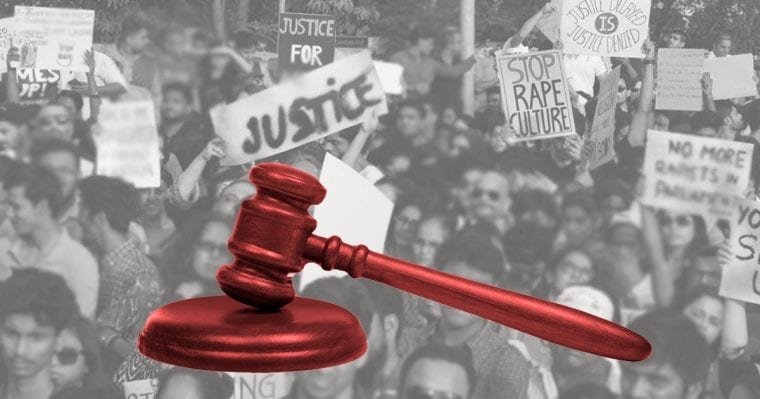Radhika Mittal
The West Bengal Legislative Assembly passed the Aparajita Woman and Child (West Bengal Criminal Laws Amendment) Bill, 2024, on September 3, 2024. The Bill, also known as the Anti-Rape Bill, introduces stricter punishments for rape convicts, including a mandatory death penalty in specific cases. This legislative move follows the horrific rape and murder of a resident doctor at RG Kar Medical College and Hospital, Kolkata, on August 9, 2024.
Key Provisions of the Bill
–1. Enhanced Punishments:
– Rape (Section 64, Bharatiya Nyaya Sanhita (BNS)): Punishment increased to life imprisonment for the remainder of the convict’s natural life or death, with a fine.
– Rape Resulting in Death or Vegetative State (Section 66, BNS): Death penalty made mandatory, with a fine.
– Gang Rape (Section 70(1), BNS): Life imprisonment for the remainder of the convict’s life or the death penalty, with a fine.
– Disclosure of Rape Victim’s Identity (Section 72, BNS): Enhanced punishment of 3-5three-five years of imprisonment and a fine. Similar enhanced punishments are proposed for unauthorized publication of court proceedings.
–2. Speedier Investigation and Trial:
– Shorter Deadlines: The Bill amends Section 193 of the Bharatiya Nagarik Suraksha Sanhita (BNSS), reducing the investigation period for rape cases to 21 days, extendable by up to 15 days.
– Expedited Trial: Amendments to Section 346(1) of BNSS mandate that trials be completed within 30 days from the filing of the chargesheet.
-3. Special Courts and Task Force:
– Special Courts: The Bill proposes the establishment of special courts under Section 29A of the BNSS to ensure quick inquiries and trials in rape cases.
– Special Public Prosecutors: Rape trials will be handled by a Special Public Prosecutor with at least seven years of legal practice.
– Aparajita Task Force: The Bill introduces Section 29C, establishing a special task force at the district level, led by the Deputy Superintendent of Police, specifically to handle rape cases. Investigations under this task force would ideally be conducted by female police officers.
Legislative Process
– The Bill was introduced following the brutal rape and murder of a 31-year-old doctor, which sparked widespread protests across the state.
– The Trinamool Congress (TMC) government, led by Chief Minister Mamata Banerjee, tabled the Bill, which was unanimously passed by the Assembly, including support from the Bharatiya Janata Party (BJP)-led opposition.
– As criminal law is part of the Concurrent List, the Bill requires Presidential assent under Article 254(2) of the Constitution to become law within West Bengal.
Reactions and Statements
– Chief Minister Mamata Banerjee: described the Bill as “historic” and emphasized the necessity of stricter laws to curb crimes against women. She cited low conviction rates in rape cases as a justification for the enhanced penalties.
-Opposition Response: BJP leader Suvendu Adhikari questioned whether the state followed constitutional norms while framing the Bill. He noted that similar laws in Andhra Pradesh and Maharashtra have yet to receive Presidential assent.
The Aparajita Woman and Child (West Bengal Criminal Laws Amendment) Bill, 2024, represents a significant step by the West Bengal government in combating sexual violence against women and children. The Bill’s passage underscores the state’s commitment to ensuring justice for victims and deterring potential offenders through stringent legal provisions.
Click here to access copy of Bill

